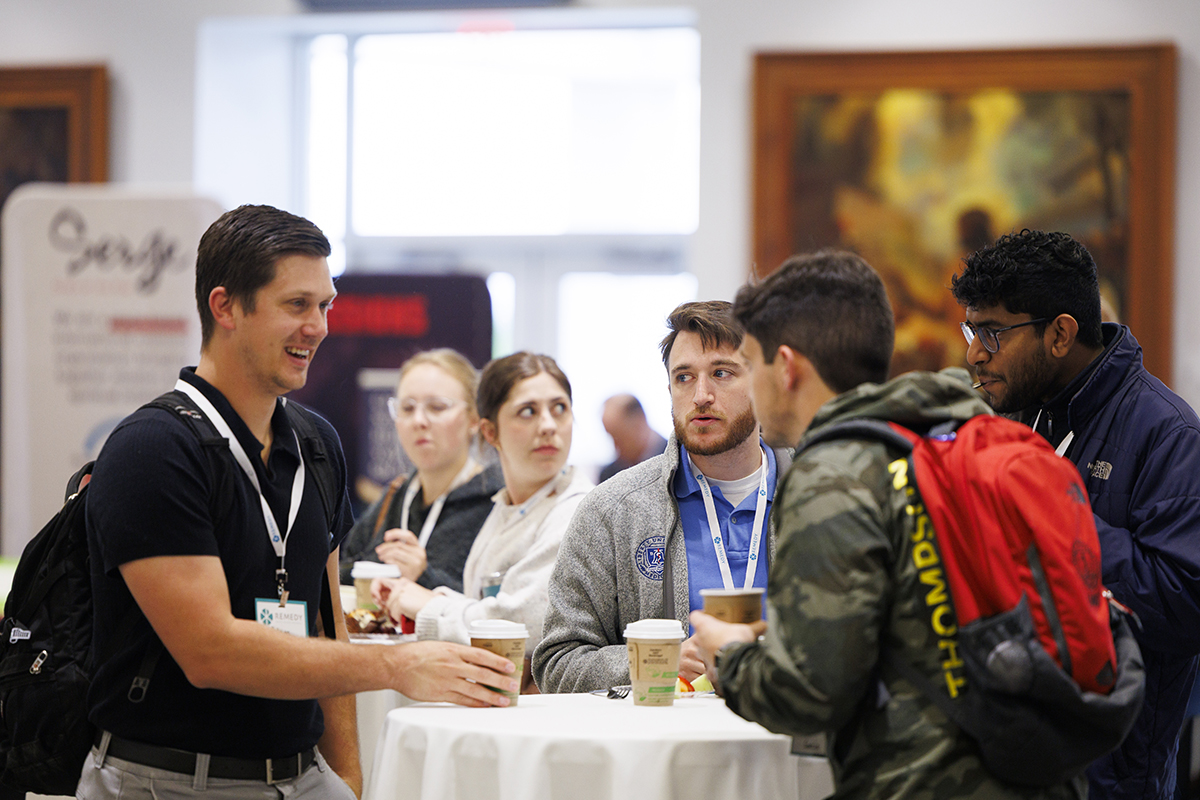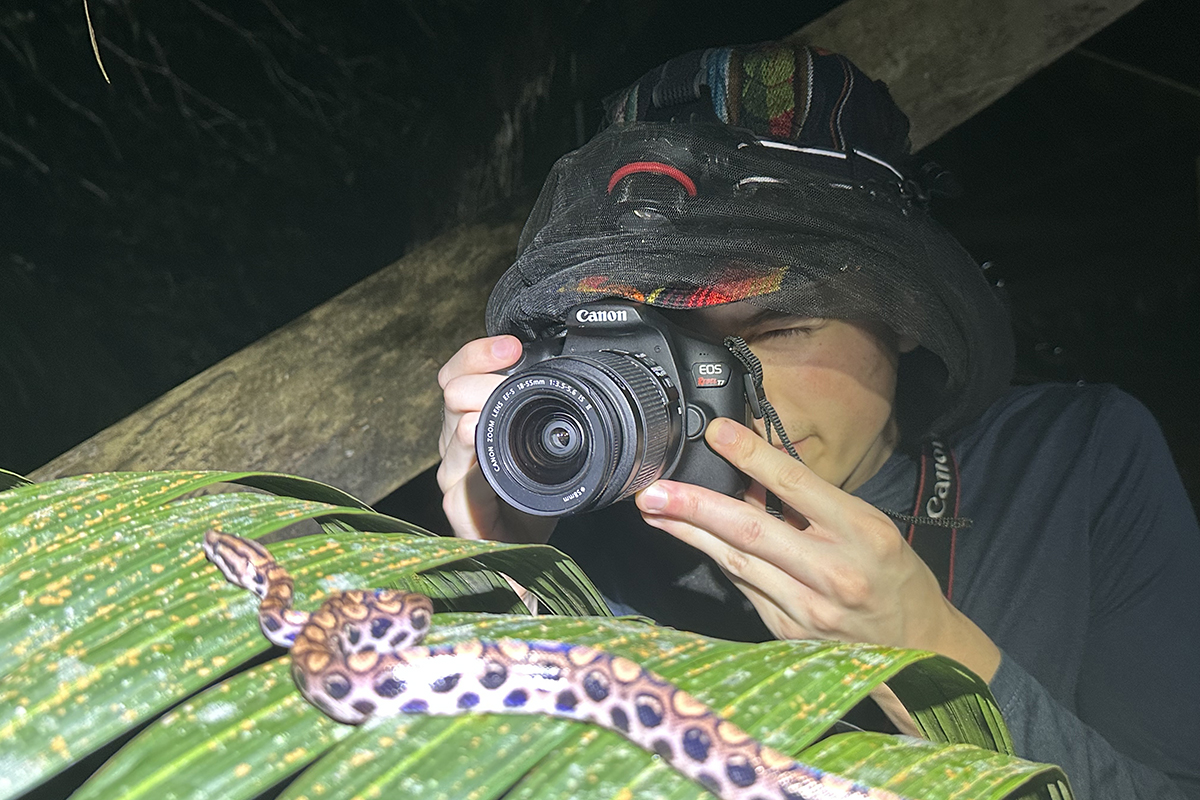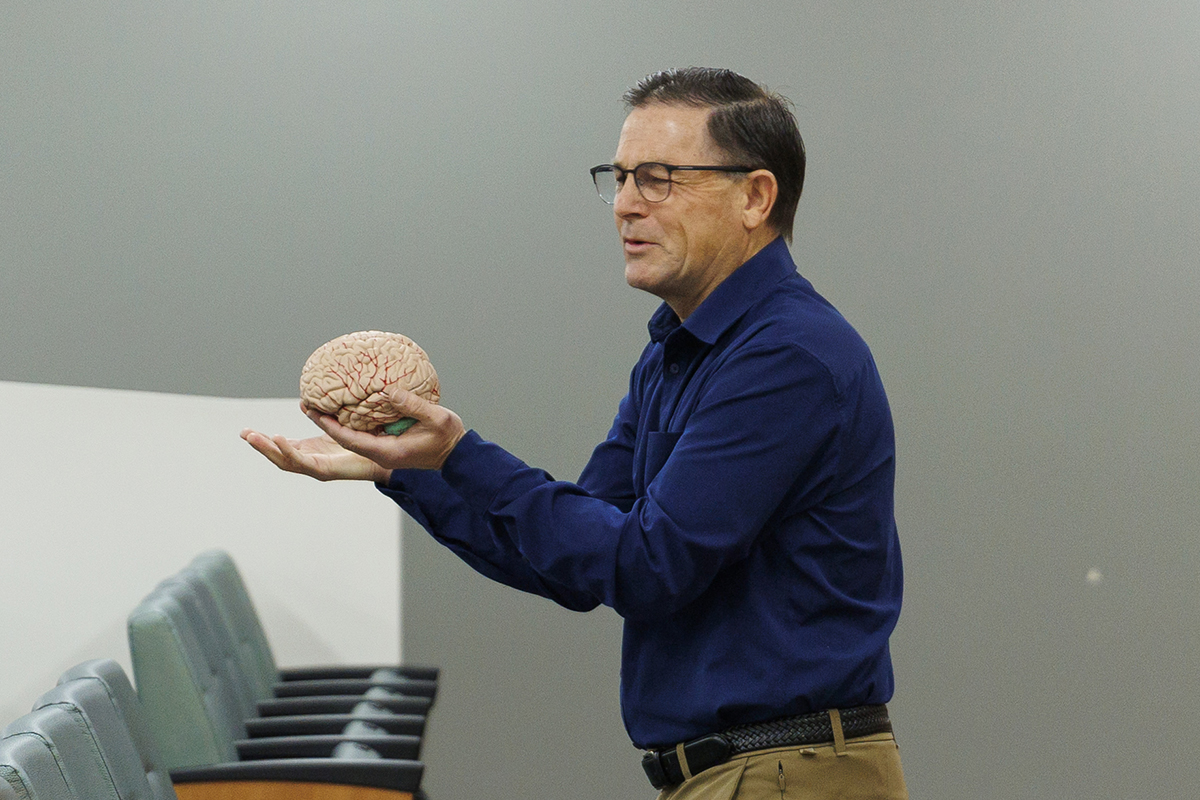LUCOM professor invites students to join him in ‘fighting the good fight’ for grant-funded cancer research
December 13, 2023 : By Ryan Klinker - Office of Communications & Public Engagement
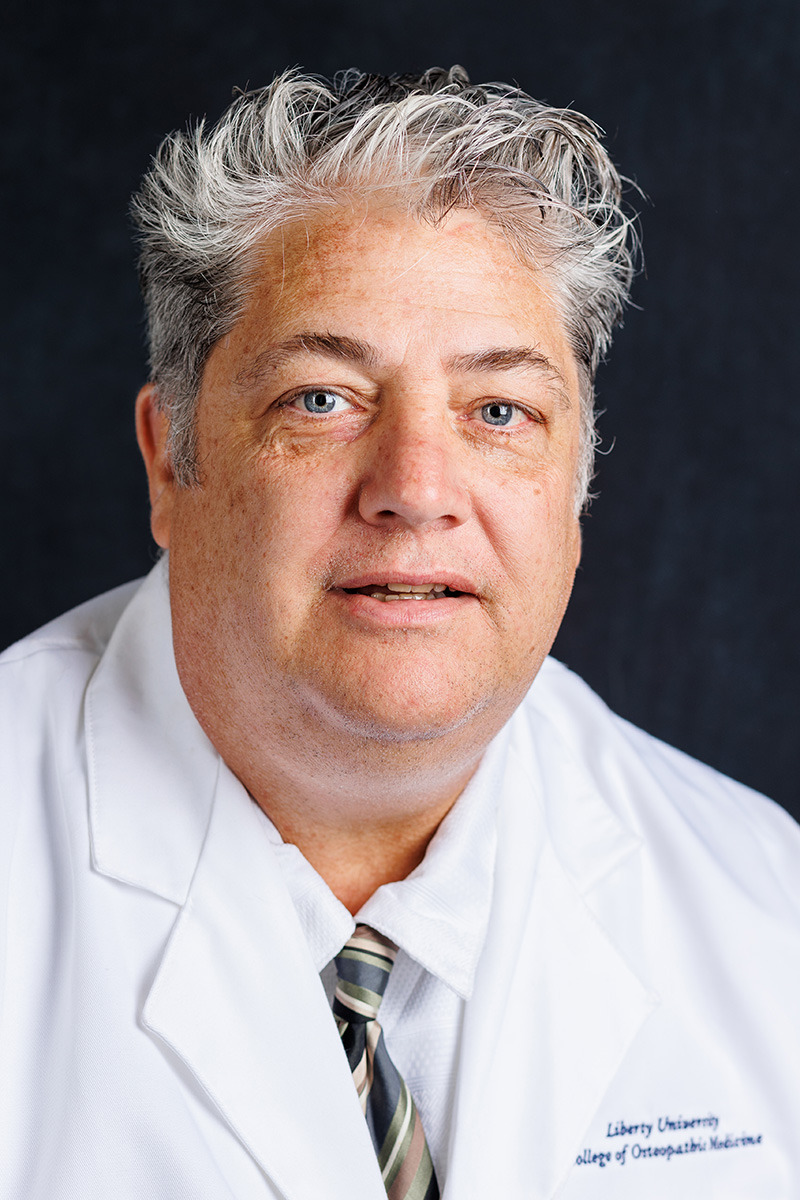 Liberty University College of Osteopathic Medicine (LUCOM) Professor of immunology Dr. Christopher L. Kepley was awarded a three-year, $500,000 R15 grant from the National Cancer Institute in September, and now he is looking for Liberty students of all levels to join him in researching a new approach for targeting and killing cancer cells.
Liberty University College of Osteopathic Medicine (LUCOM) Professor of immunology Dr. Christopher L. Kepley was awarded a three-year, $500,000 R15 grant from the National Cancer Institute in September, and now he is looking for Liberty students of all levels to join him in researching a new approach for targeting and killing cancer cells.
R15 grants support small-scale research projects at educational institutions that provide baccalaureate or advanced degrees for a significant number of the nation’s research scientists who have not been major recipients of National Institutes of Health (NIH) support. The goals of the grant are to support meritorious research, expose students to research, and strengthen the research environment of the institution. This is the first time that Liberty has received a grant from the National Cancer Institute, though it has been awarded grants from the NIH in the past.
This is Dr. Kepley’s second R15 grant which also focused on cancer immunotherapy.
Kepley’s research focuses on the use of mast cells — tissue cells involved in the body’s immune system that have potent anti-tumor mediators. Dr. Kepley devised a strategy for harnessing the potent anti-cancer mediators found in these cells to specifically target unique surface markers on tumor cells and controlled to release the cancer killing milieu upon cancer cell interactions. Importantly, mast cells can be obtained in quantities necessary for patient infusion, can be cryopreserved without loss of function, and display no overt toxic effects when injected through veins. At this stage of the research, Kepley is doing additional lab tests on different types of cancerous tumors and has multiple positions open to students to participate. Kepley has been studying different uses and aspects of mast cells for over 30 years throughout his career, and in the past five years he has focused on their ability to combat cancer cells.
Two LUCOM students who have been involved in the research presented a poster at the Society for Immunotherapy for Cancer’s annual meeting last month in San Diego. Data from the study was also published in an article for the Journal for Immunotherapy of Cancer. Kepley noted that any student can apply to join the research team.
“R15s are structured to incorporate undergraduate, graduate, and doctoral students, so the students from all of those levels can come and work in the lab. I’m starting to get the necessary materials and reagents to pursue these studies, and I’ve got a couple undergraduates who are volunteering so far; I do have paid positions too. This opportunity is not just in research, but also learning how to write up the data and present it at national meetings like the one in San Diego.”
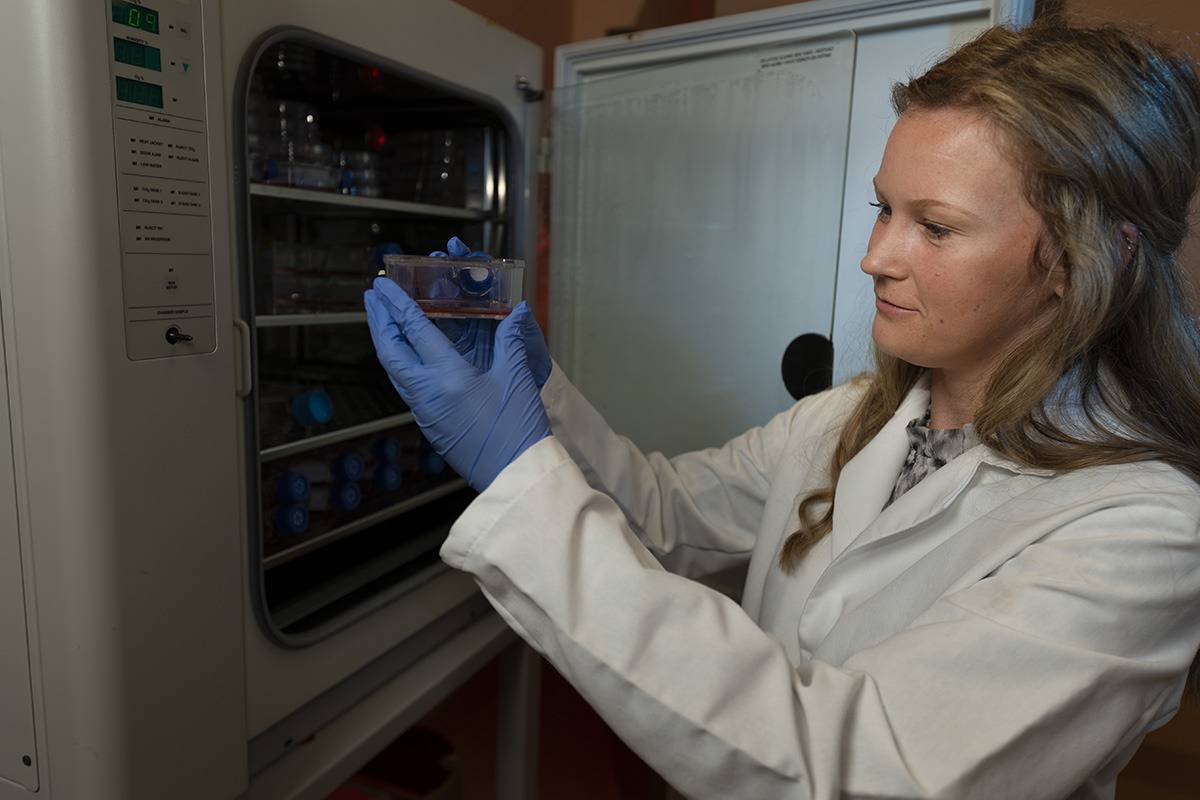 The study is being conducted through the LUCOM Center for Research, which supports excellence in research and scholarship in the biomedical sciences, clinical medicine, and medical education.
The study is being conducted through the LUCOM Center for Research, which supports excellence in research and scholarship in the biomedical sciences, clinical medicine, and medical education.
In studying mast cells and their previously unknown ability to break down cancer cells, Kepley said this research is an opportunity for students to better understand the intricate design of the human body while also gaining an exposure to laboratory and research settings that will serve them in their careers.
“We’re here to Train Champions for Christ, and to do that, my focus and area of expertise is in research,” he said. “I want to make our students more experienced, more competitive for jobs. Understanding the Creator-design biology of the human body is a continuous quest, and learning the mechanisms of cancer and finding new ways to treat it is always going to be fighting the good fight.”
Earlier this year, Kepley also received a separate grant for $74,000 over 12 months from the Virginia Innovation Partnership Corporation for the development of an alternative bait for crustacean fishermen using molecules found emanating from rotting flesh. The project, titled “Pre-Commercialization of a Sustainable Crustacean Bait to Help Alleviate Ocean Ecosystem Decline,” has been an effort of Kepley’s since before he was hired at Liberty, and it is now a partnership with School of Engineering mechanical engineering professor Wayne Strasser, PhD, PE. Dr. Strasser’s research involves fluid mechanics and is helping define optimal dissolving rates for different ocean ecosystems. Kepley described it as an opportunity for students to practice commercialization and entrepreneurship as they develop the bait.
“Most crab and lobster fishermen use live bait, and those bait prices are skyrocketing, so this is a drop-in solution for them. It doesn’t spoil, it doesn’t have to be refrigerated, and you can just have it on a boat and drop it in. The grant is to simply bring our work to the market, acquire equipment to scale up production, hire students to help, and so on.”
“I want students who will really champion this cause, fall in love with it, be passionate about it, and start this business,” he added. “I’m really excited to see it come to fruition”
Students interested in participating in either research project can email Dr. Kepley at ckepley@liberty.edu.
